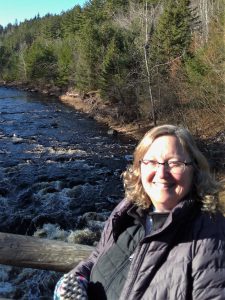
Our latest alumni profile is with Robin Schmidt, who received a BS in Geography with an independent major in Environmental Policy in 1980 and an MS in Land Resources in 1986, both from UW Madison. She has worked for the Wisconsin Department of Natural Resources and as Dane County Supervisor from 2008-2018. We spoke with Robin about what she learned in Science Hall and what drew her to a career in public service and public-sector work in elected office.
What drew you to be a Geography major at UW-Madison?
I loved the concept of spatial relations – the how and why of where civilizations developed and the relationship they had with the land and their surrounding environment.
What led you into a career of public service and public-sector work after graduation from the Geography program?
I felt compelled to work for an organization that served the public good rather than a private interest. I felt that the connection with land and water was critical to a progressive community and wanted to work on efforts that enhanced that connectivity. I started working in water resources outreach, then to planning then to environmental cleanups. Even when I worked at the Department of Agriculture, Trade and Consumer Protection on food and agriculture security, the connection to the land and resources was dominant in my activities. I am ending my career at the WI DNR as the manager of the program that finances municipal water infrastructure throughout the state.
How did your geography education influence your role with the Wisconsin Department of Natural Resources and as Dane County Supervisor from 2008-2018?
Geography is a link between many specialty areas – and that foundation helped build my career at the DNR and helped me see relations differently as a Dane County Supervisor. Serving as the Chair of the Public Works and Transportation Committee, I was able to ensure support for sustainable operations and bring transit issues to the forefront of debate. Unfortunately, many politicians at the state level are unable or unwilling to see the long-term needs of transit and connecting people to each other, to jobs and to meet daily needs but it’s really important to keep those issues in the forefront of debate and in the public eye.
What advice would you give to other geography students who are interested to go into public service and public-sector work?
There are many opportunities with my generation retiring. I would encourage Geography students to think broadly and to keep an open mind to various careers in the public sector. It is incredibly important to have another generation of public workers with the passion and commitment to making the community a better place for us now and into the future.
Why is it important to have geographers out in the world?
Geographers see more broadly and see connections that others may miss. The world is full of connections and relations and dependencies – and geographers can bring those to light and support policies that ensure those connections continue.



